Join us on Patreon! https://www.patreon.com/MichaelLustgartenPhDDiscount Links: Epigenetic, Telomere Testing: https://trudiagnostic.com/?irclickid=U-s3Ii2r7x…
Category: life extension – Page 150
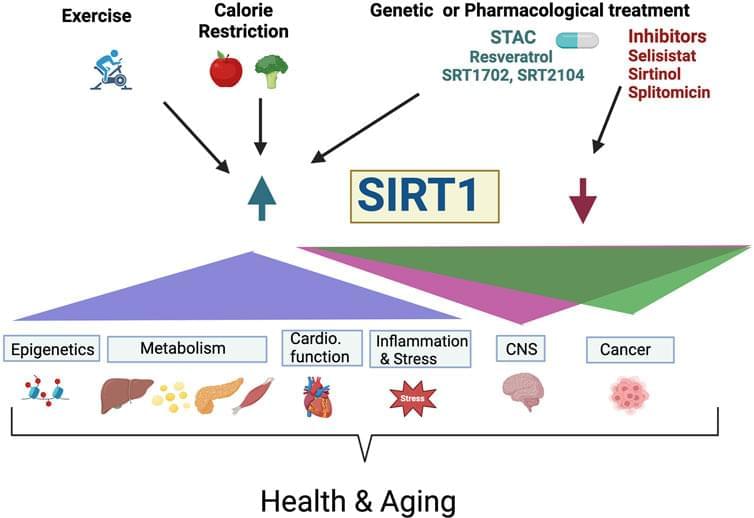
Frontiers: Aging is linked to a time-associated decline in both cellular function and repair capacity leading to malfunction on an organismal level
Increased frailty, higher incidence of diseases, and death. As the population grows older, there is a need to reveal mechanisms associated with aging that could spearhead treatments to postpone the onset of age-associated decline, extend both healthspan and lifespan. One possibility is targeting the sirtuin SIRT1, the founding member of the sirtuin family, a highly conserved family of histone deacetylases that have been linked to metabolism, stress response, protein synthesis, genomic instability, neurodegeneration, DNA damage repair, and inflammation. Importantly, sirtuins have also been implicated to promote health and lifespan extension, while their dysregulation has been linked to cancer, neurological processes, and heart disorders. SIRT1 is one of seven members of sirtuin family; each requiring nicotinamide adenine dinucleotide (NAD+) as co-substrate for their catalytic activity. Overexpression of yeast, worm, fly, and mice SIRT1 homologs extend lifespan in each animal, respectively. Moreover, lifespan extension due to calorie restriction are associated with increased sirtuin activity. These findings led to the search for a calorie restriction mimetic, which revealed the compound resveratrol; (3, 5, 4′-trihydroxy-trans-stilbene) belonging to the stilbenoids group of polyphenols. Following this finding, resveratrol and other sirtuin-activating compounds have been extensively studied for their ability to affect health and lifespan in a variety of species, including humans via clinical studies.
Aging is associated with a progressive metabolic, physiological decline and can be genetically and environmentally modified (Helfand and Rogina, 2000). The search for the molecular basis of aging led to the identification of several pathways associated with longevity including insulin/IGF-1, target of rapamycin (TOR) and the Sirtuins (Kenyon, 2010; Chen et al., 2022). The sirtuins are a family of nicotinamide adenine dinucleotide (NAD+)-dependent histone deacetylases (Haigis and Sinclair, 2010; Hall et al., 2013; Bonkowski and Sinclair, 2016; Dai et al., 2018; Singh et al., 2018). Sirtuins are also categorized as deacetylases because they catalyze the post-translational modification of signaling molecules including decrotonylation, ADP-ribosylation, diacylation, desuccinylation, demalonylation, depropynylation, delipoamidation, and deglutarylation, and other long-chain fatty acid deacylations (Feldman, Baeza, and Denu, 2013; Choudhary et al., 2014; Fiorentino et al., 2022).
In mammals, there are seven members (SIRT1-SIRT7) including SIRT1, SIRT6 and SIRT7, which are localized to the nucleus, and SIRT3, SIRT4, and SIRT5 localized to the mitochondria, SIRT2 localized to the cytosol, and SIRT1 also localized to cytosol in some cell types (Bonkowski and Sinclair, 2016). As histone deacetylases, sirtuins function by removing acetyl groups from the target proteins resulting in either inhibition or activation. SIRT1, SIRT6 and SIRT7 have many functions including: regulators of transcription, control of cellular metabolism, DNA repair, cell survival, tissue regeneration, inflammation, circadian rhythms and neuronal signaling (Haigis and Sinclair, 2010). SIRT3-5 are important for switching to mitochondrial oxidative metabolism during CR and modulate stress tolerance (Verdin et al., 2010).

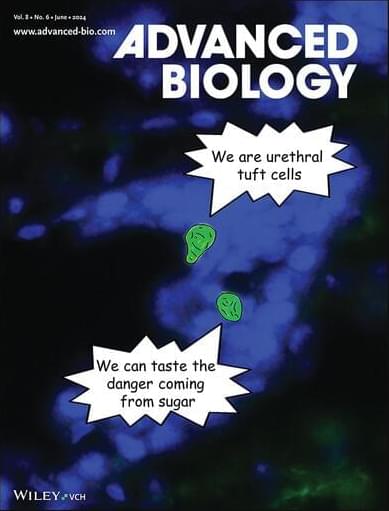
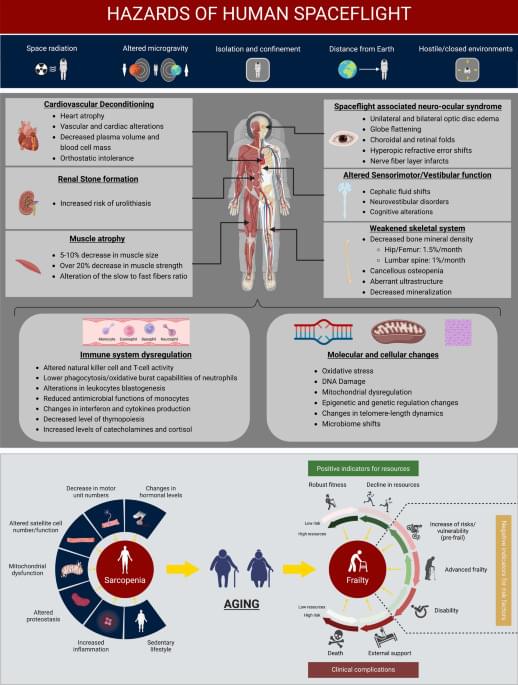
Aging and putative frailty biomarkers are altered by spaceflight
Camera, A., Tabetah, M., Castañeda, V. et al. Aging and putative frailty biomarkers are altered by spaceflight. Sci Rep 14, 13,098 (2024). https://doi.org/10.1038/s41598-024-57948-5
Petr Sramek presents at the Rejuvenation Startup Summit 2024
Petr Sramek, Co-founder of the Healthy Longevity Clinic, and Managing Partner of the LongevityTech.fund, presents at the Rejuvenation Startup Summit 2024.
Connect to Forever Healthy:
* Videos: https://forever-healthy.org/videos/
* News: https://forever-healthy.org/news/
* LinkedIn: / forever-healthy-foundation.

Philosopher David Chalmers: We Can Be Rigorous in Thinking about the Future
David is one of the world’s best-known philosophers of mind and thought leaders on consciousness. I was a freshman at the University of Toronto when I first read some of his work. Since then, Chalmers has been one of the few philosophers (together with Nick Bostrom) who has written and spoken publicly about the Matrix simulation argument and the technological singularity. (See, for example, David’s presentation at the 2009 Singularity Summit or read his The Singularity: A Philosophical Analysis)
During our conversation with David, we discuss topics such as: how and why Chalmers got interested in philosophy; and his search to answer what he considers to be some of the biggest questions – issues such as the nature of reality, consciousness, and artificial intelligence; the fact that academia in general and philosophy, in particular, doesn’t seem to engage technology; our chances of surviving the technological singularity; the importance of Watson, the Turing Test and other benchmarks on the way to the singularity; consciousness, recursive self-improvement, and artificial intelligence; the ever-shrinking of the domain of solely human expertise; mind uploading and what he calls the hard problem of consciousness; the usefulness of philosophy and ethics; religion, immortality, and life-extension; reverse engineering long-dead people such as Ray Kurzweil’s father.
As always you can listen to or download the audio file above or scroll down and watch the video interview in full. To show your support you can write a review on iTunes, make a direct donation, or become a patron on Patreon.

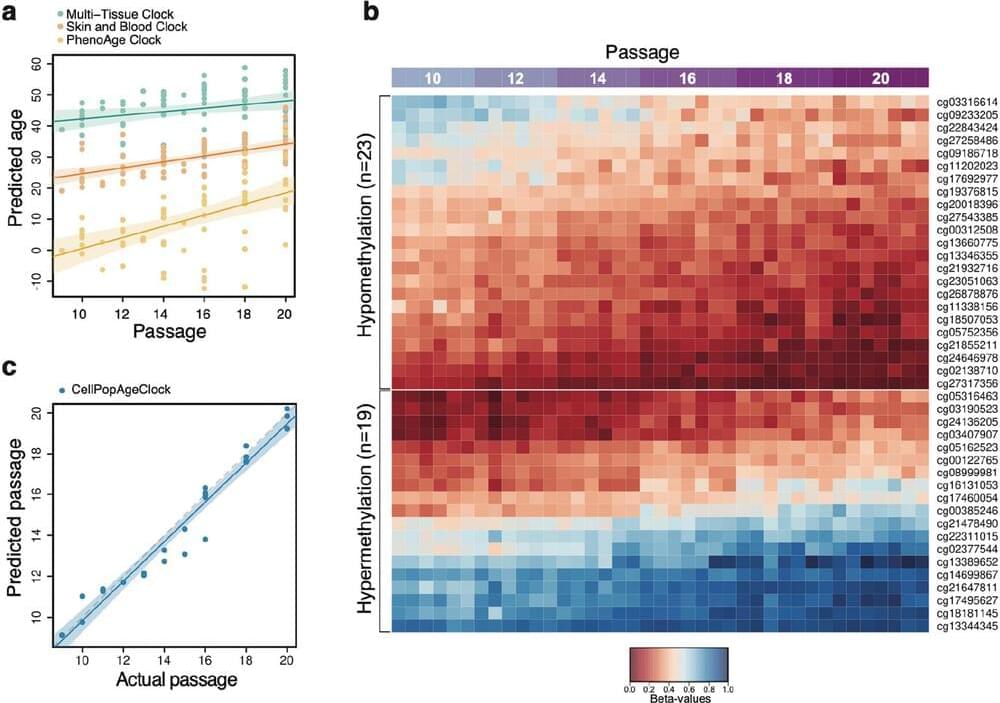
An expedited screening platform for the discovery of anti-ageing compounds in vitro and in vivo
Restraining or slowing ageing hallmarks at the cellular level have been proposed as a route to increased organismal lifespan and healthspan. Consequently, there is great interest in anti-ageing drug discovery. However, this currently requires laborious and lengthy longevity analysis. Here, we present a novel screening readout for the expedited discovery of compounds that restrain ageing of cell populations in vitro and enable extension of in vivo lifespan.
Using Illumina methylation arrays, we monitored DNA methylation changes accompanying long-term passaging of adult primary human cells in culture. This enabled us to develop, test, and validate the CellPopAge Clock, an epigenetic clock with underlying algorithm, unique among existing epigenetic clocks for its design to detect anti-ageing compounds in vitro. Additionally, we measured markers of senescence and performed longevity experiments in vivo in Drosophila, to further validate our approach to discover novel anti-ageing compounds. Finally, we bench mark our epigenetic clock with other available epigenetic clocks to consolidate its usefulness and specialisation for primary cells in culture.
We developed a novel epigenetic clock, the CellPopAge Clock, to accurately monitor the age of a population of adult human primary cells. We find that the CellPopAge Clock can detect decelerated passage-based ageing of human primary cells treated with rapamycin or trametinib, well-established longevity drugs. We then utilise the CellPopAge Clock as a screening tool for the identification of compounds which decelerate ageing of cell populations, uncovering novel anti-ageing drugs, torin2 and dactolisib (BEZ-235). We demonstrate that delayed epigenetic ageing in human primary cells treated with anti-ageing compounds is accompanied by a reduction in senescence and ageing biomarkers. Finally, we extend our screening platform in vivo by taking advantage of a specially formulated holidic medium for increased drug bioavailability in Drosophila. We show that the novel anti-ageing drugs, torin2 and dactolisib (BEZ-235), increase longevity in vivo.
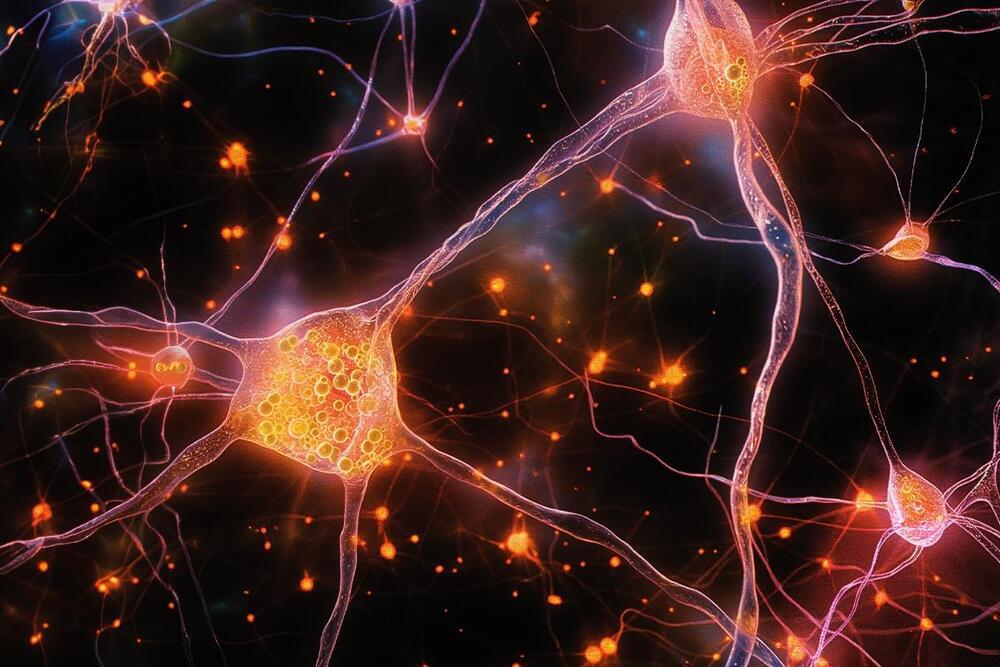
Alzheimer’s-related synapse damage reversed by synthetic protein
Researchers at the Okinawa Institute of Science and Technology (OIST) have developed a potentially transformative approach to treating Alzheimer’s disease, A team from the former Cellular and Molecular Synaptic Function Unit have reported significant progress in reversing cognitive decline and restoring memory in transgenic mice using a synthetic protein. The findings, published in Brain Research, offer hope for a viable treatment to alleviate the debilitating symptoms associated with this neurodegenerative condition.
“We successfully reversed the symptoms of Alzheimer’s disease in mice,” explained Dr Chia-Jung Chang, first author of the study and presently a member of the Neural Computation Unit at OIST. “We achieved this with a small, synthetic peptide, PHDP5, that can easily cross the blood-brain barrier to directly target the memory center in the brain [1].”
Longevity. Technology: There is a pressing need to find effective treatments for Alzheimer’s; along with other forms of dementia, this debilitating disease currently affects approximately 55 million people worldwide, and this number is predicted to nearly double every 20 years, reaching 78 million in 2030 and 139 million in 2050. As well as a health burden, Alzheimer’s is an economic burden – the annual global cost of dementia has now rocketed to more than US$1.3 trillion, with a projected rise to US$2.8 trillion by 2030 on the horizon [2].